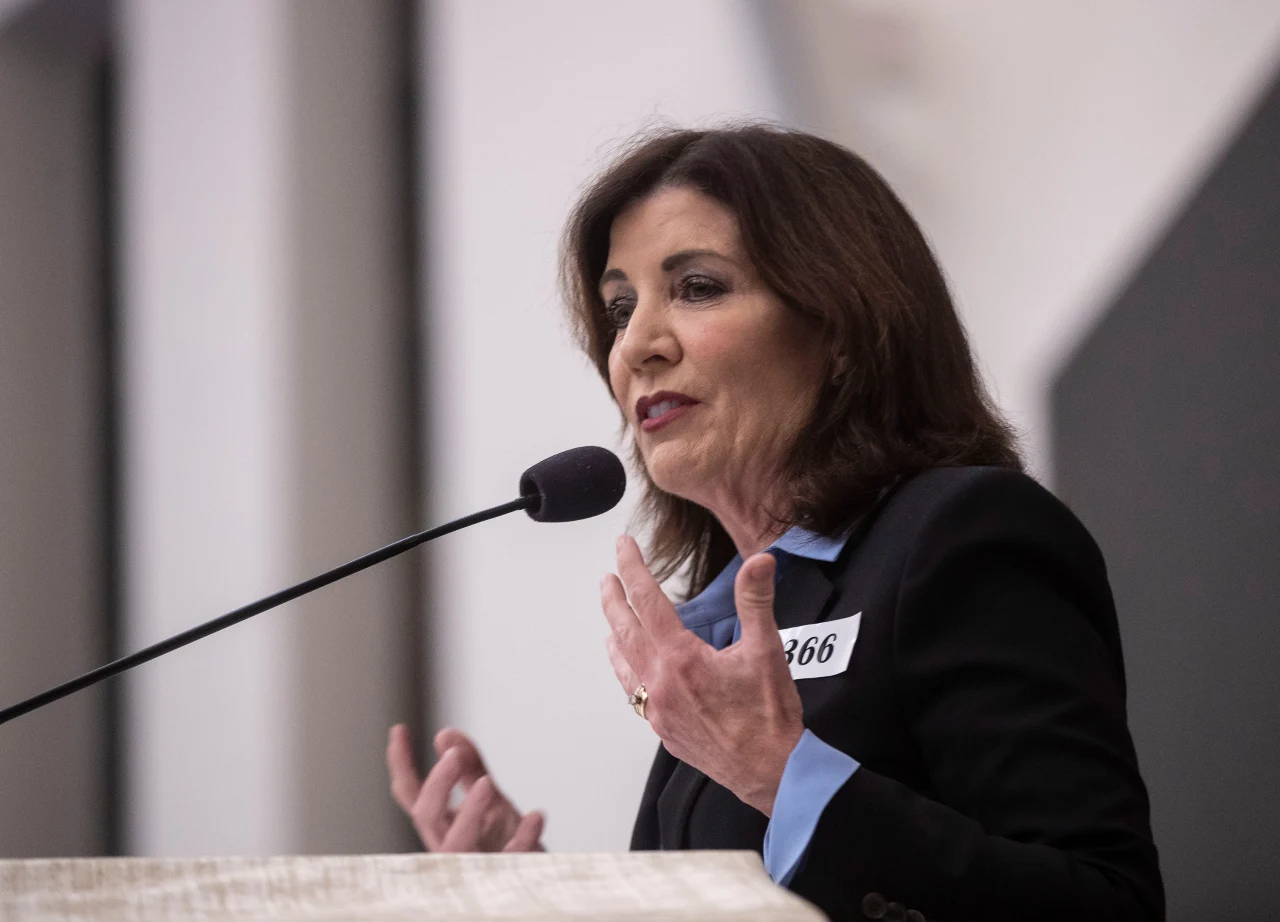Content on this page may include affiliate links. If you click and sign up/place a wager, we may receive compensation at no cost to you.
Betting advertisements now must clearly include problem gambling hotline

New York Governor Kathy Hochul has signed into law a bill that mandates that any gambling advertisement aimed at the state’s residents must “clearly and conspicuously” post a problem gambling hotline number.
The law clarifies any previous possible misunderstanding by specifically listing mobile sports betting advertisements and commercials under the same umbrella as more traditional gambling options, such as retail casinos or horse racing tracks.
“Protecting New Yorkers from the dangerous and addictive effects of problem gambling and sports betting is vitally important for the prosperity of our great State,” Hochul said in a statement. “I’m confident that with the signing of this new bill, New Yorkers will have easier access to the safety resources they need to better protect themselves from the grips of addiction.”
The State Gaming Commission already had mandated that a problem gambling hotline number be listed, but now the ads also will have to include warnings about the potential harmful and addictive effects of gambling. The commission also now must cooperate with the Commissioner of Addiction Services and Supports to ensure that these conditions are enforced.
Balancing revenue and social responsibility
Gaming Commission Chairman Brian O’Dwyer said, “We are encouraged that this common-sense measure has been codified into state law.”
New York State Senator Leroy Comrie said the law strikes a proper balance between competing state interests.
“While (gambling tax) revenue for the State is certainly important, promoting responsible gambling and safeguarding our communities is also critical,” Comrie said. “New York residents have access to various gambling options, including casinos, racetracks, the lottery and sports betting platforms like FanDuel and DraftKings, so it is essential that users are informed about the risks of addiction and know where to seek help if needed.”
That revenue has been considerable, as New York’s 51% tax on gross gaming dollars is the highest in the United States for a competitive marketplace of more than a half-dozen competitors. In 2022, the first full year in which New York betting included both mobile and retail casino sports betting, the state collected $693 million in taxes and $200 million more in initial licensing fees.
The direct tax benefit rose to $862 million in 2023 and could reach as high as $1 billion by the end of calendar year 2024. All of those numbers far outpace any recorded in 36 other states that since 2018 have launched legal, regulated sports betting in the wake of a landmark U.S. Supreme Court ruling.
Hochul noted that compulsive gambling is sometimes referred to as “a hidden addiction,” since there often are no outward physical signs of a problem. Yet it can result in financial, emotional, social, occupational and physical harm and devastating consequences for individuals, as well as their families and friends.
New York residents seeking help for problem gambling have a number of options available, including inpatient, outpatient, residential programs and recovery support through a system of certified providers, State-operated treatment services and a private practitioner network. Regional Problem Gambling Resource Centers are located in every region of the state.